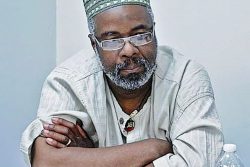For many economists, journalists and commentators, the Doha development round at the World Trade Organisation (WTO) died a while back, but has yet to be laid to rest. Launched with much optimism in Qatar in November 2001, the round had as a fundamental objective, achieving economic growth in developing countries through a process of multilateral trade liberalisation and the revision of trade rules. The intention was it would increase the velocity of trade in goods and services to the benefit of even the poorest nations.
 Today, however, WTO members are heading towards a ministerial meeting in December in Bali which could not only spell the death knell of any comprehensive global trade agreement for the foreseeable future, but might marginalise the WTO as a consequence. Understanding how the round’s likely demise has come about after nearly twelve years of negotiation, and what happens next, very much depends on the perspective of who one talks to, but in essence, the origin of the difficulties now facing the WTO has three fundamental causes.
Today, however, WTO members are heading towards a ministerial meeting in December in Bali which could not only spell the death knell of any comprehensive global trade agreement for the foreseeable future, but might marginalise the WTO as a consequence. Understanding how the round’s likely demise has come about after nearly twelve years of negotiation, and what happens next, very much depends on the perspective of who one talks to, but in essence, the origin of the difficulties now facing the WTO has three fundamental causes.
Firstly, the financial and economic crisis of 2007/8, and the painfully slow global recovery since then, has meant that few nations, let alone all 159 members of the WTO, are any longer willing to make the concessions required, or accept the leap of faith that is needed to see benefit arising over time from opening their markets to all comers.
This is because most governments have ceased to think multilaterally and are struggling to raise revenue, preserve jobs, and maintain social programmes.
Secondly, over the period since the Doha Round was first agreed, there has been a radical change in the location of global power. Large developing economies such as China, Brazil and India have emerged as global economic powers, changing the dynamics of decision-making, and marginalising the previously unchallenged belief that the old powers alone could determine what is best for the world, its economy and global trade.
Moreover there is a sense that the WTO’s approach is now outdated and that the actions of the markets are outpacing the WTO’s cumbersome decision making structure.
And thirdly, all of the member states of the WTO have become immensely more sophisticated at negotiating and have come to understand well how, in a body in which decision-making is by consensus, it is possible to establish complex positions and overlapping groups in ways that make finding solutions on which everyone can agree politically at the same moment virtually impossible
Up to now, however, no nation has wanted to speak the truth publicly and accept the round’s demise for fear of being found to have their fingerprints on the victim’s neck. As a consequence, the WTO negotiating process has continued to stagger on.
In recent years this has meant that the emphasis has moved away from a grand single undertaking, in which trade in goods and services and all of the adjuncts were to be contained in one comprehensive agreement. So today, ambition is limited to a focus on achieving a few component parts which might be deliverable like trade facilitation; the removal of bureaucratic constraints such as the time taken on customs clearance for imported goods.
However, what is now apparent is that this and other seemingly easier to resolve issues have also become subject to the same negotiating problems that apply to the full round, with issues ranging from the timing of national elections through to ‘hostage taking’ of issues holding back, experts say, any likelihood even minimal progress by December.
The consequence is that there is a sense that if there is nothing on which agreement can be achieved by the time of the Bali Ministerial, then it is likely that nations will walk away, and that some significant states may pronounce the Doha Round dead.
For a number of nations, including the US and Europe, this may be politically opportune as it will enable them to concentrate on their preferred alternative: bi-regional and bilateral negotiations with those groups of nations or individual states where they see real benefit in removing trade barriers.
An end to the round would also allow them to set aside the difficulties of accommodating agreement with those nations that fall into the category of too difficult politically to open their markets to, or those where there is little commercial value in market opening.
It will also allow all nations the time and the space required to adjust their relationships to the changed global balance of political and economic power.
In anticipation of this, developed nations and advanced developing nations have for the last few years been placing their negotiating energy into achieving trade agreements intended only to restore or stimulate growth between compatible economies.
That is why, for instance, Europe and the US have embarked on negotiating a Transatlantic Trade and Investment Partnership (the TTIP), the EU is seeking agreements with India, Mercosur and others, Japan and Australia are negotiating a plethora of partnership agreements, as too are other nations.
It is a process that will further marginalise regions like the Caribbean that have so far failed to integrate and have economic weight, unless it too can establish and deliver new hemispheric trade agreements.
For some what is happening also suggests that despite the WTO’s many important roles beyond providing a vehicle to negotiate trade liberalisation, the body will lose influence and may be marginalised by the bigger powers.
For the Caribbean what happens next may be a mixed blessing.
While the region may well welcome the easing of pressure for opening its markets to the world at large, it may also need to think about the value of those parts of the WTO and multilateral engagement that have proved useful; the dispute resolution procedures, support in capacity building and in particular, the beneficial role it plays in global governance for small states.
For this last reason alone, even if the Doha Round is dead, it is important that the WTO under its new leadership continues to play a central role in global trade in a manner that supports small nations.
In a matter of weeks the WTO’s new Director General, the Brazilian, Roberto Azervedo, will take office.
He will need to inspire and demonstrate the post Doha role the WTO will play in the seemingly barren years ahead.
If he does not, the body will become weaker and regions like the Caribbean will be the losers.
Previous columns can be found at www.caribbean-council.org







